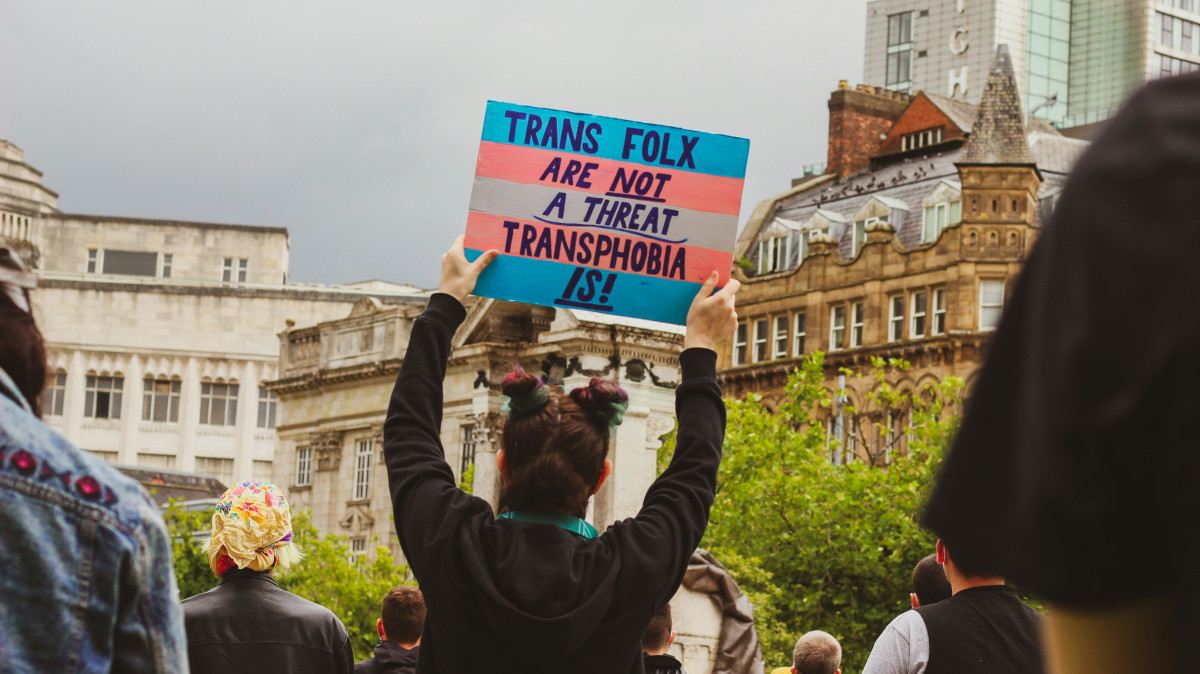
H.R. 28 would ban schools from receiving federal funding if they allow trans girls access to sports. It passed the U.S. House of Representatives on Jan 14, 2025 with 216 Republican Supporters, 2 Democrat Supporters, 206 Democrat Opposers, 7 Dem & 3 GOP non-voters.
To become law, it must also pass the U.S. Senate, which has 52 Republican Senators, 45 Democrats, 2 Independents caucusing with Democrats, and one vacancy.
(Spread Flyers to raise awareness and encourage action.)
If you support this legislation, then you need to learn more about trans people. Changing The Game on Hulu is a documentary looking at the impact of trans sports bans, including personal stories from students and families. You can also ask your local librarians for help finding books about these topics. Don't buy into the fear-mongering propaganda of those who wish to divide us.
To oppose this legislation, contact the U.S. Senators for your state (alt senator lookup), though I doubt it will make any difference.
Ultimately, it will be up to your local School Board to determine what happens in your community.
School Boards can decline federal funding to avoid the impacts of this ban.
School Boards may be able to direct funding to students for non-governmental sports leagues as a technical work-around. School Districts can (and do) pay for summer programs with non-governmental organizations, so this should be within their purview.
School Boards should direct finance administrators to prepare reports on how this ban will impact their school, with regard to funding.
Schools may be able to launch co-ed sports leagues for some sports where biological advantage is miniscule or nonexistent between genders/sexes, or where the sports are largely for casual enjoyment, not competition.
States can find ways to increase funding for schools to make up for the loss of federal funding. There may be some legal avenue for states to modify birth certificates and official records, or take some other technical legal action, to make this ban unenforceable.
Local Journalists can cover the potential local impact of this proposed ban, and interview people mentioned here to determine options that are available and the local will to protect civil rights.
Local residents can advocate for property tax increases to increase school funding, shifting of taxes from other local government agencies, and reduction in bloated administrative staffing or other wasteful or unnecessary spending. Local residents can advocate for anything I've suggested here, with school boards or state-level representatives.
Unions representing school employees (teachers, teaching assistants, maintenance staff, security) should discuss these issues and whether they're willing to negotiate a wage or benefits reduction to compensate for the loss of federal funding.
Police Unions can do the same, working with city and school officials to redirect some police funding to schools.
Community organizations can start their own sports leagues that do not depend on federal funding, and can look for independent funding from local donors to support children of families who cannot afford membership on their own.
Wealthy individuals can work with school officials to make donations and make up for the lost revenue, contingent on protecting the civil rights of trans folks. Wealthy folks should organize together to support this purpose at scale. Friends of wealthy folks should start these conversations and encourage their friends to get involved in this way.
Friends of police officers, teachers, union representatives, and school board members should start these conversations and encourage the protection of civil rights for trans girls.
Gardeners can grow food and provide free produce to any school staff impacted by reduction of pay.
Employees of contractors (such as those providing school lunches), can negotiate a reduction in private profits to help decrease the financial burden on schools. Employees can unionize and threaten to strike if companies do not comply.
Doctors and other healthcare workers can refuse to engage in genital examinations, therefore rendering enforcement impossible (provided states also address this from a technical paper-trail standpoint).
Let this article spark further ideas for how you can engage in your local community to resist this erosion of civil rights. This is not necessarily an exhaustive list.
As I've mentioned elsewhere, you can spread public messaging in support of civil rights. You can buy local billboards (organize with friends!), organize protests, print flyers and leave them at grocery stores, and more.
Photo by Oriel Frankie Ashcroft on Pexels